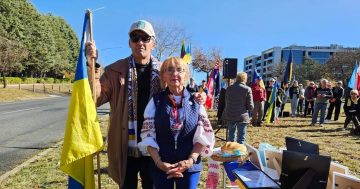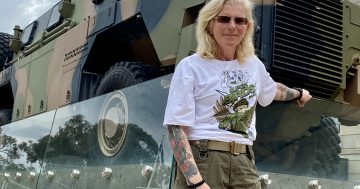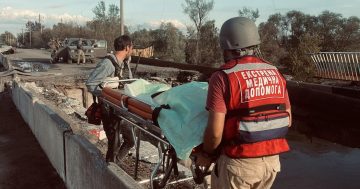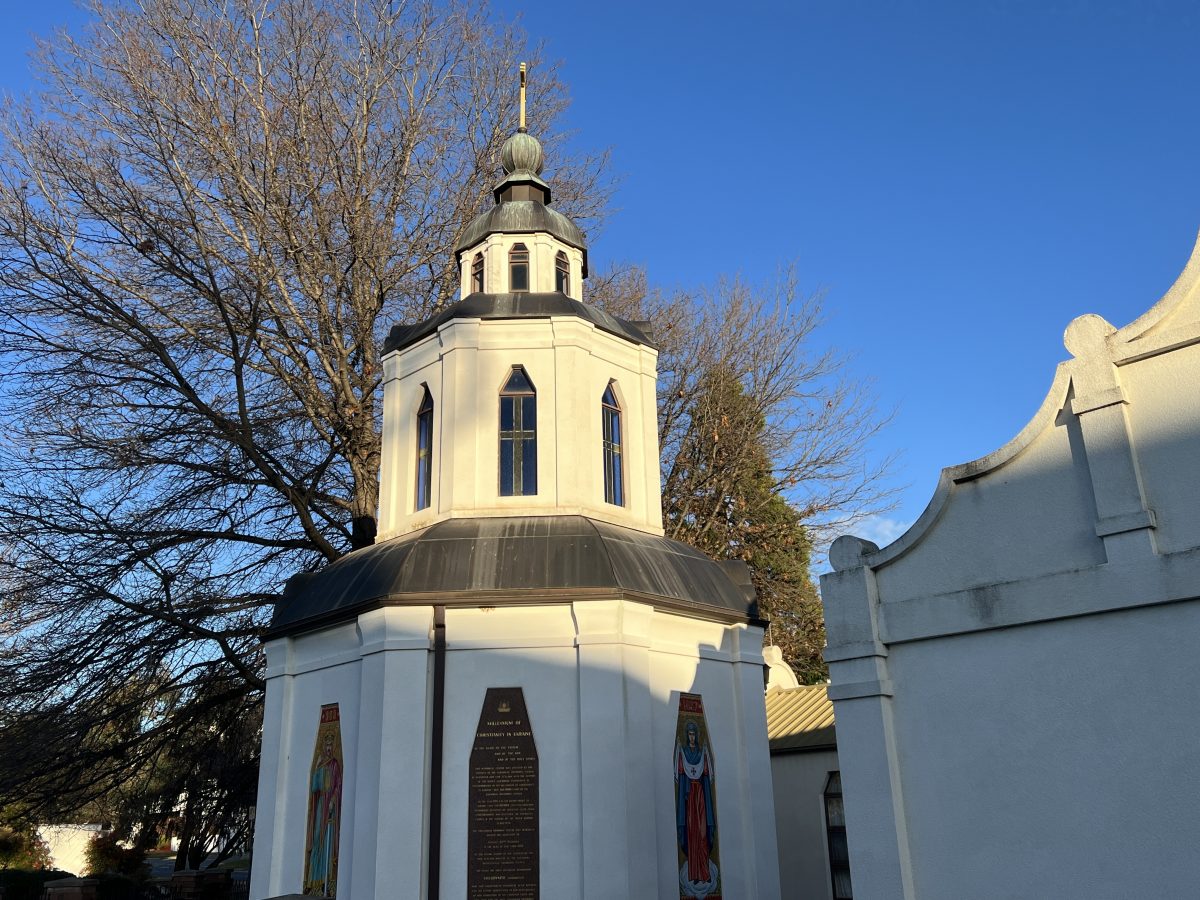
The Ukrainian Orthodox Church in Turner is named after Saint Volodymyr, credited with bringing Christianity to the region in the 10th century. Photo: James Day.
Every Sunday, Father Michael Solomko opens the doors of the Ukrainian Orthodox church in Turner to a community still in turmoil.
They come to church to find some peace from the barrage of horrific headlines continuing to spill out of the news.
“The worst part is it just never seems to stop, we all thought it would be over by now. I really don’t know how our people cope,” Father Michael says.
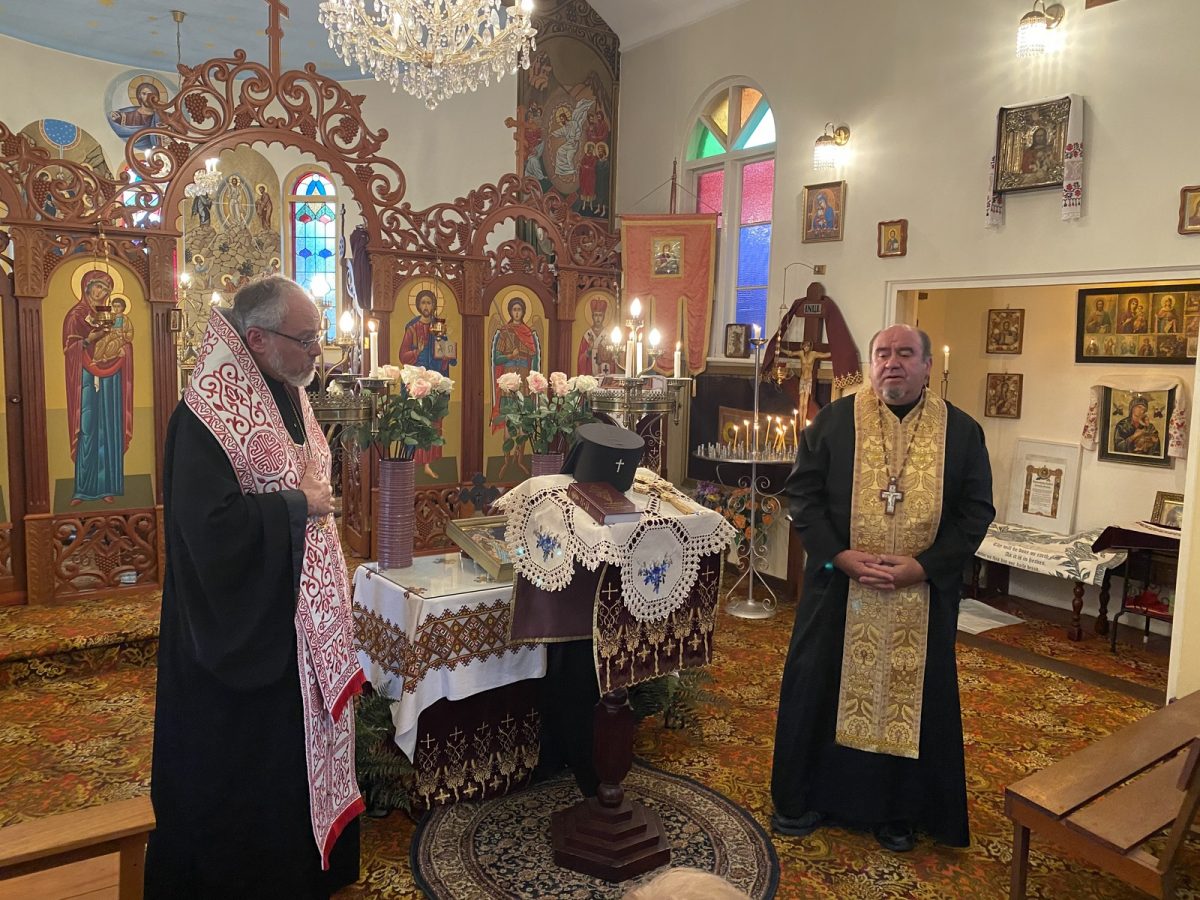
Father Michael (right) maintains close ties with the rest of the Ukrainian diaspora throughout Australia. Photo: Mykola Mowchan.
Along with the ongoing alleged reports of Ukrainian children being deported by Russian forces, the most recent collapse of the Kakhovka dam in the country’s southern region has done an untold amount of damage.
“There are so many people suffering from those devastating floods as a result of the dam exploding,” Father Michael says.
“Our head of community in Melbourne, [Australian Federation of Ukrainian Organisations] AFUO chairman Mr Stefan Romaniw, came up recently. He highlighted the fact that close to where he lives along the Maribyrnong River, people are still recovering from the damage done by the floods nine months before.
“So it begs the question, what impact will the dam have? God only knows.
“There are people from Ukraine here, most of whom are women with husbands still defending their homeland.
“Due to the anxiety about the welfare of their families, many of these women have returned home as they couldn’t bear the pain of the distance and time apart.”
As the war drags on, this has become a recurring matter. Yet others have assimilated into the community while continuing to assist refugees in finding jobs and housing.
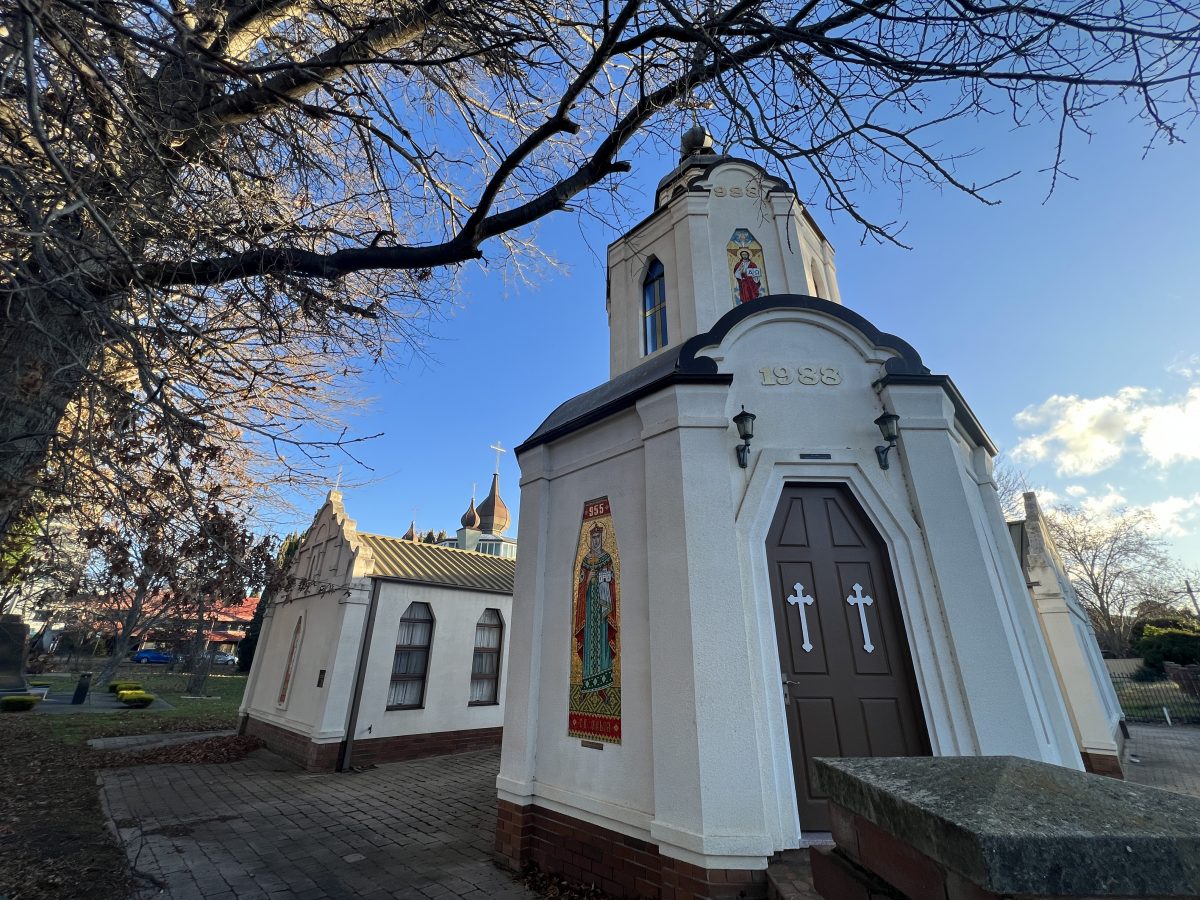
While the word is still out on who is responsible for the dam explosion, people affected in the region are struggling to find clean water. Photo: James Day.
Unsuccessful attempts by Region have been made to speak with Ukrainian refugees. Father Michael says this is due to their ongoing fears that comments made to the media will result in acts of violence upon their families at home by the Russians.
Father Michael grew up in Newcastle, where his parents had migrated to from Germany in 1949. They had met in a displaced persons camp run by the Nazis, after being forcibly relocated from their homes in Ukraine.
When Joseph Stalin’s Russia began to escalate its control throughout Europe after the war, his parents feared they would be persecuted like they had been during the Holodomor genocide (1932-1933).
He shared the story of his mum who used to buy kerosene and a lottery ticket from the local Caltex service station. At that time in the early 1950s, the attendants there wore khaki uniforms and a cap with a red star on it as their logo.
One day, a ticket she’d received won her a black and white TV. So two Caltex attendants came to the family’s home while her husband was at work, and knocked on the door.
“Through the curtains my mum saw two men in uniform with a red star on their hat, and thought the NKVD (USSR Secret Police) had found them,” Father Michael says.
“She ran out of the living room with my older brother and they both hid under the bed until my dad came home later that evening.
“It’s still very real for these people, it will always be.”
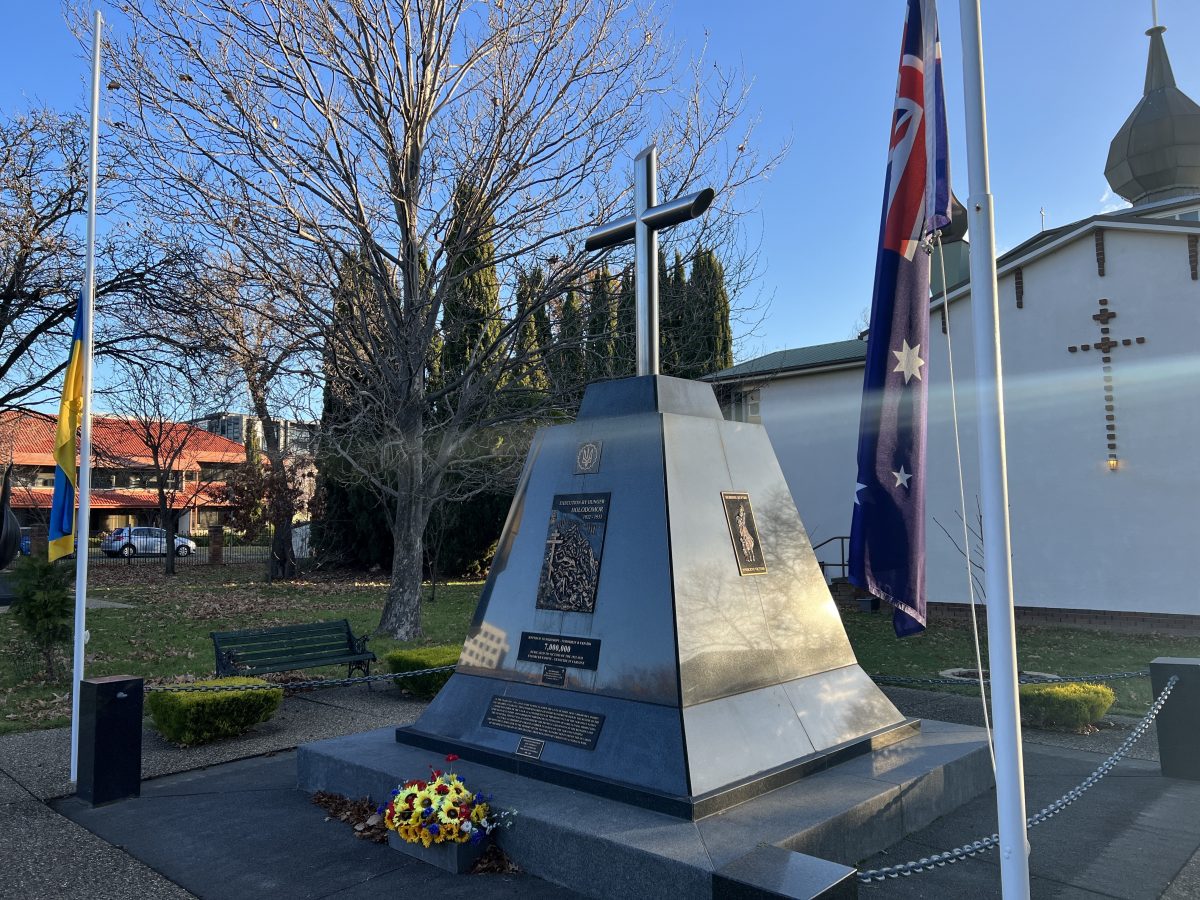
Like other genocides, the occurrence of Holodomor has been contested for decades and was only recognised by the European Parliament in December 2022. Photo: James Day.
Dr Sonia Mycak, a research fellow at the ANU Centre for European Studies, also runs the Ukrainian Association of Sydney and is well versed in the experiences of recently arrived refugees.
She says the sudden departure from their home, arrival into a new country and adjusting to a new society, is compounded by the separation from their family and an uncertain future.
Then there is PTSD (Post-Traumatic Stress Disorder), on which Dr Mycak can speak from personal experience.
Her mother, who just turned 93, also came from Ukraine after World War II and the Soviet occupation of Ukraine. During last year’s invasion, she began to relive her old memories and started having nightmares.
“She stopped eating and couldn’t stop crying,” Dr Mycak says.
“All the time she’d watch footage of the invasion and would tell me, ‘I heard those sirens; I had to run through the streets like that; I saw people dead on the road.'”
In spite of this personal toll on her family, Dr Mycak continues to spread awareness throughout the Australian community and support the Ukrainian people. As a student of English and alliteration she says: “I feel devastated, distressed, desperate; but defiant and determined.”
For those looking to provide support, Father Michael recommends the Ukraine Crisis Appeal and the Australian Federation of Ukrainian Organisations (AFUO).












